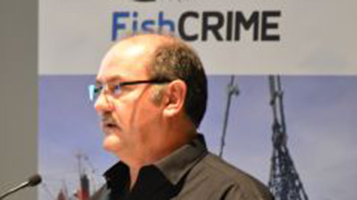
The Nelson Mandela Metropolitan University (NMMU) recently received confirmation that funding has been approved towards the establishment of a Fisheries Law Enforcement Academy at NMMU in Port Elizabeth.
Professor Hennie van As, a Professor in Public Law and Director of the Centre for Law in Action (CLA) in the Faculty of Law at NMMU said, “The main purpose of the academy is to address international sea fisheries crime. We aim to train fisheries inspectors and other role-players in the criminal justice system along the South and East African coastlines, as well as Namibia, with a plan to extend this throughout the Indian Ocean Rim, including countries like Indonesia.”
The Fisheries Law Enforcement Academy training will cover basic and specialised training in how to board a ship, crime scene management, the difference between inspection and investigation and what happens when an inspection becomes an investigation. Training will also include species identification, the use of technology in monitoring and surveillance, and technical issues such as permits and quotas, as well as the legal aspects of international smuggling and human trafficking.
Emphasising the importance of the training that will be provided by the academy in collaboration with on-going international efforts to address fisheries crime, Professor van As commented “The illegal harvesting, processing and trading of any kind of fish or seafood globally is so huge, it’s in effect a parallel economic system that’s undermining sustainable economic growth. Countries are being deprived of taxes; citizens of jobs, food and income; and fisheries and environments are being destroyed.”
Speaking on behalf of Stop Illegal Fishing Per Erik Bergh welcomed the initiative “Tackling crime in the fisheries sector is especially challenging due to the complex multi jurisdictional nature of the crimes taking place; having well informed and well trained professionals working in this sector is vital.”
Source: www.stopillegalfising.com